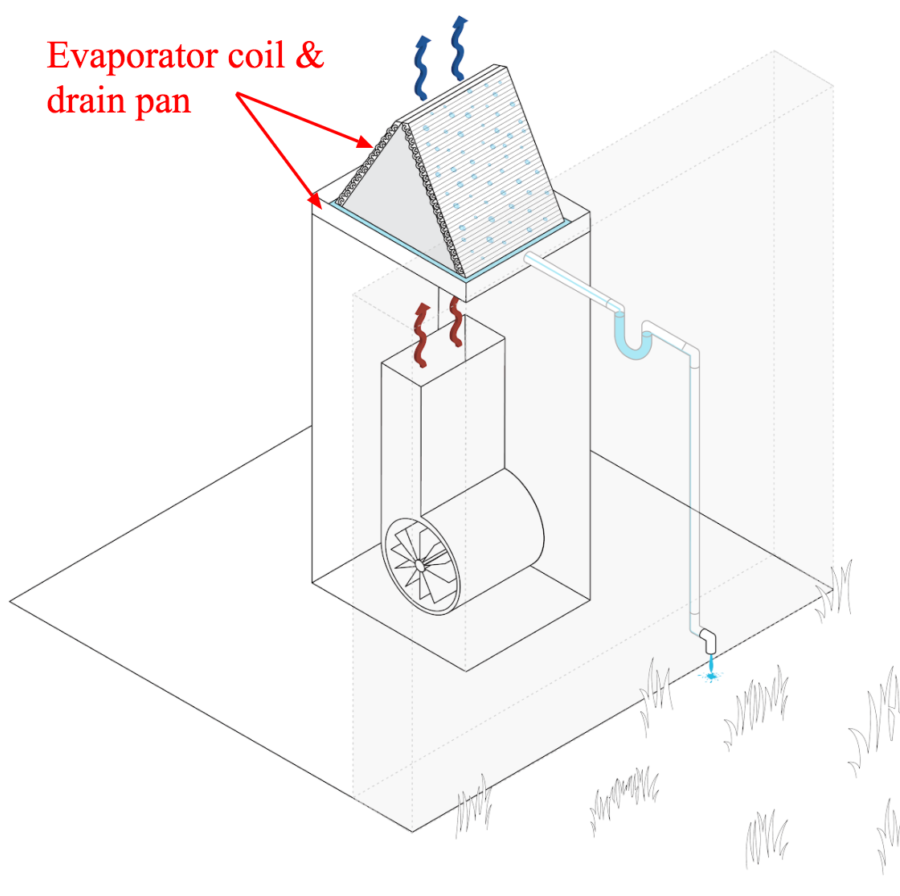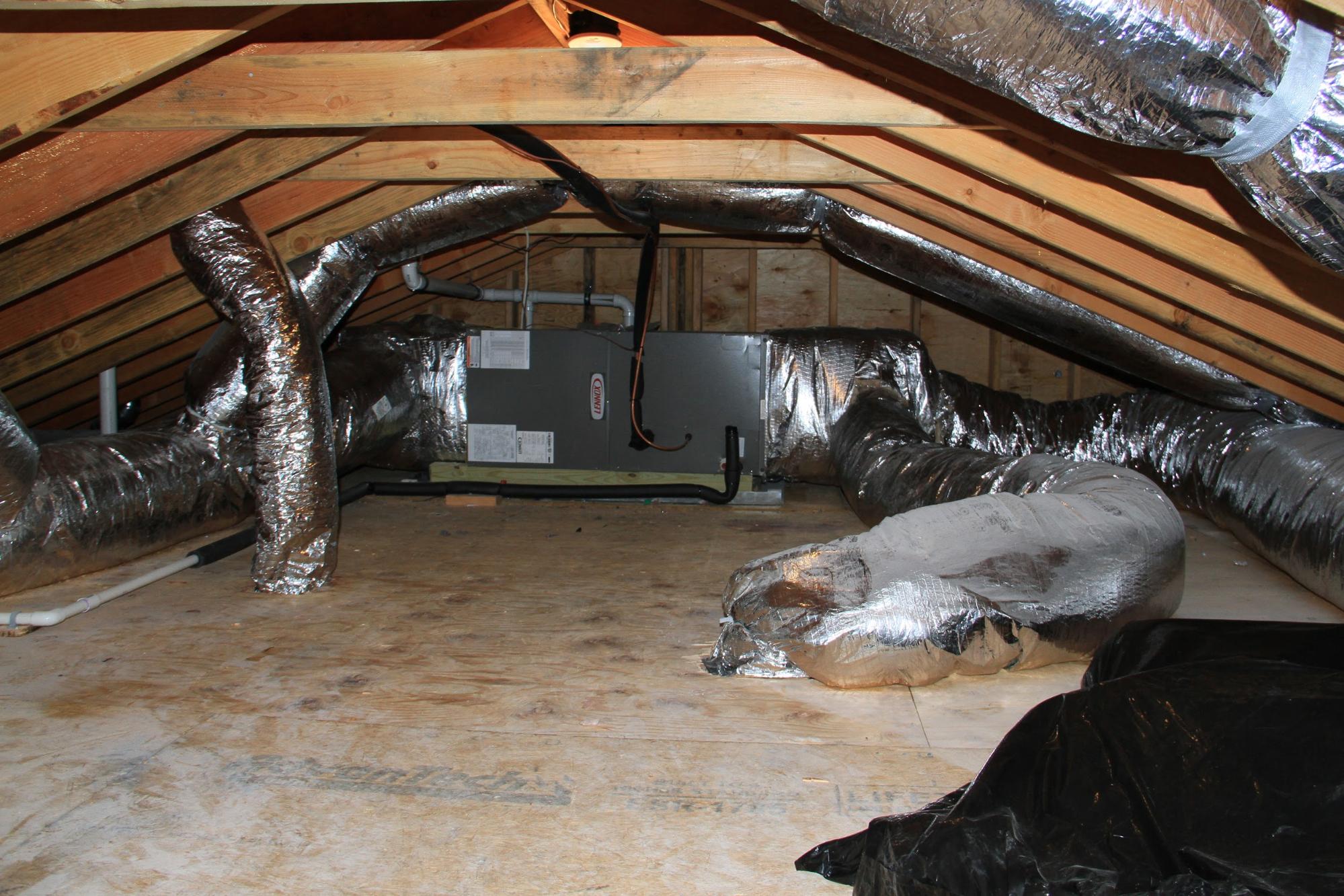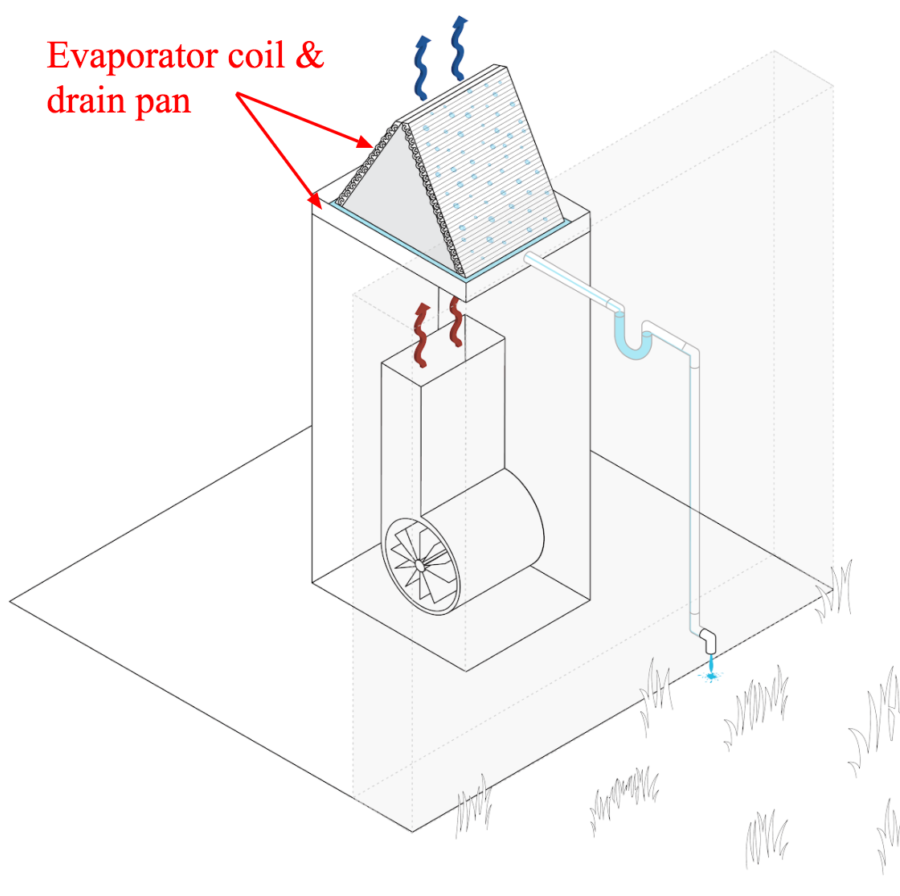Why Does My AC Smell Like Mildew? An NJ Tech Answers
November 11, 2024

Notice that your AC system has started to smell like mildew? That’s not a good sign.
The most likely reasons your AC smells like mildew include:
- A leak in your air ducts
- Clogged condensate drain line
- Dirty evaporator coil
Below, we’ll look at each of these issues in more detail so you can get a better understanding of why your AC smells like mildew and what you can do to fix it.
Mildew cause #1: A leak in your air ducts

Your air ducts travel through dirty and unconditioned parts of your home, like your attic. If there are holes in your ductwork, humid air and particles like dust and spores can enter your ducts.
Your ducts are insulated and usually run through dark spaces, giving mold a perfect home to grow.
- How do you know if you have leaks in your ductwork?
- Your energy bills have increased significantly
- Your AC isn't cooling your home properly
- You notice that your home is dustier than normal
If you think you might have leaks in your ductwork, you’ll need to reach out to a tech for help. They will check your ductwork for leaks and repair the leaks if they exist.
Mildew cause #2: Clogged condensate drain line
One reason why your AC may smell like mildew is a clogged condensate drain line.
When your AC cools your home, it dehumidifies your home’s air, and the moisture from the air collects in a part of your indoor unit called the drain pan. The moisture then exits your home via a condensate drain line.

However, if that drain line is backed up or clogged, water can stay in the drain pan or condensate line for longer than it’s supposed to. And since that water is sitting in a warm, dark environment, it can cause mold to grow, which is why you might notice a mildew smell coming from your indoor unit.
Signs that you may have a condensate clog include:
- Water pooling around the base of your indoor unit
- Increased energy bills
- Your AC turning off shortly after it turns on
If you think a clogged condensate line could be your issue, you can try to unclog it yourself by:
- Locating the end of the condensate drain line (typically a white PVC pipe in the wall close to your outdoor AC unit)

- Attaching a shop vac to the end of the line
- Turning the vac on for 30 seconds-1 minute
- Checking the vac to see if you have successfully removed any debris
If that doesn’t work, you should contact a technician. They will be able to directly locate the clog and successfully unclog it. Depending on how long your condensate drain line has been clogged, there also may be mold growth that a tech will need to clean out of your system and drain line.
Mildew cause #3: Dirty evaporator coil

If your evaporator coil is dirty, it can encourage mold and mildew to grow, which is why you may notice a smell.
How does mold grow on a dirty evaporator coil? Well, as we mentioned above, your AC system cools your home and dehumidifies it.
Your AC dehumidifies your home’s air by blowing the air over something called an evaporator coil. When the air passes over the coil, the moisture is drawn out of the air and settles on the coil.
Now, if the coil is covered in a layer of dirt or grime, and also has warm water constantly gathering on it, it can become the perfect home for mold to grow.
You may have a dirty evaporator coil if:
- You notice water puddling around the bottom of your AC unit
- There isn’t a strong airflow coming from your AC vents
- The air coming from your vents isn’t very cool
If you think a frozen evaporator coil may be your issue, you’ll need to reach out to a technician for help. Your evaporator coil is located inside your indoor AC unit so it’s hard to access. It’s also a very delicate part and can become easily damaged if it’s not cleaned properly.
Need help getting rid of that mildew smell? Talk to the best in NJ: Air Experts
If you think you might have any of the issues listed above and need the help of a professional, we’d be happy to help. We’ve been serving NJ homeowners for the last 26+ years, so no matter what’s going on with your AC, you can trust us to handle it expertly.
